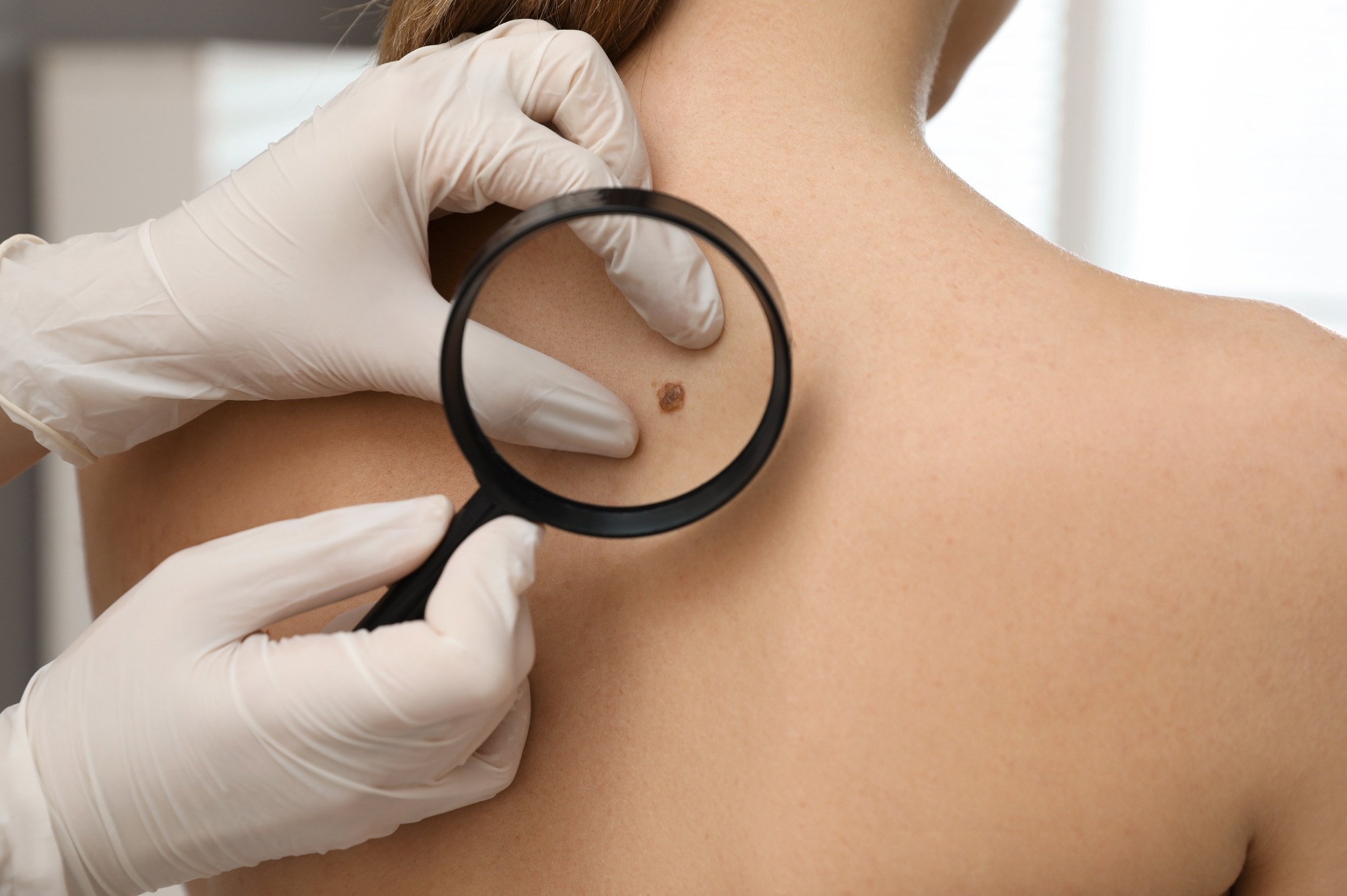
Image Credit: Medical University of Vienna
The research team verified the AI application under realistic clinical conditions in two skin cancer centers, the University Department of Dermatology at the Medical University of Vienna and the Sydney Melanoma Diagnostic Center in Australia. The prospective research consisted of two scenarios, with AI being used in scenario A for changes suspicious of skin cancer and in scenario B for patients with many moles. The AI-assisted application was compared with medical experts and inexperienced physicians.
In the case of A, 84 were malignant out of 172 suspicious pigmented lesions examined in 124 patients. In the case of B, 18 were malignant out of 5,696 pigmented lesions in 66 patients. Two different AI-based smartphone applications, such as a novel 7-class AI algorithm and an ISIC algorithm, were used in retrospective preliminary studies. In the case of A, the 7-class AI algorithm showed equivalent diagnostic accuracy compared to the experts, while it was significantly superior to the less experienced physicians. The ISIC algorithm was inferior compared to experts, and healthier than the inexperienced users.
A Critical View of AI Decisions
The 7-class algorithm was inferior to the experts, and superior to the inexperienced users while considering treatment. The results proved that an AI-assisted smartphone application for skin cancer diagnosis made good diagnostic decisions as experts in a real clinical scenario. When it came to treatment decisions, the experts were superior to the AI.
The AI application tends to remove more benign lesions in the treatment recommendation than experts would. If you take this into account, the AI application can certainly be used. It should also be borne in mind that if it is used uncritically, too many false-positive findings would have to be clarified.
Harald Kittler, Professor and Doctor, Department of Dermatology, Medical University of Vienna
Journal Reference:
Menzies, S. W., et al. (2023). Comparison of humans versus mobile phone-powered artificial intelligence for the diagnosis and management of pigmented skin cancer in secondary care: a multicentre, prospective, diagnostic, clinical trial. The Lancet Digital Health. doi.org/10.1016/S2589-7500(23)00130-9.